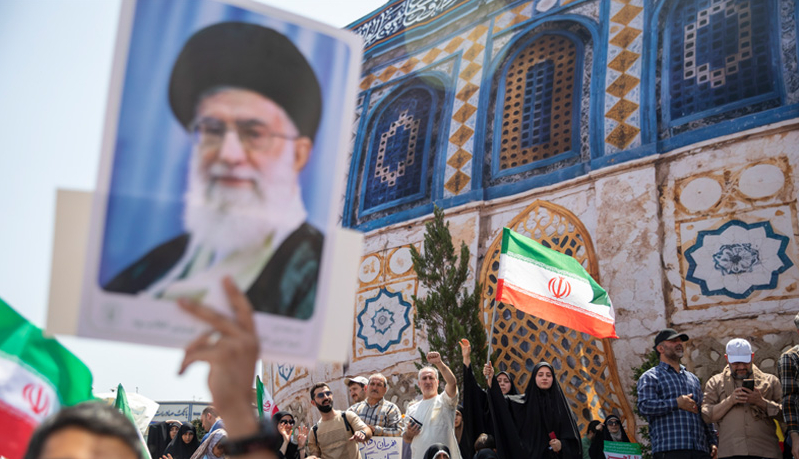
The Iranian government has arrested hundreds since the 12-day war with Israel and the United States last month, indicating a renewed focus on stifling internal dissent in the wake of a damaging military operation.
At least 10 people have been executed after sham trials.
At least 10 people have been executed after sham trials. This crackdown follows a pattern that has been established over the years. Perhaps fearing that military losses may project weakness to detractors within the country, the regime is now focusing heavily on tightening its internal grip on power.
“The situation for Iranian people is more dangerous now than before the war,” Nobel laureate Narges Mohammadi told The Wall Street Journal in a recent interview. “Unfortunately, I think the repression will intensify further in the coming days.”
The recent spate of arrests and executions follows a predictably repressive pattern designed to suppress any opposition. Victims are tortured, tried without independent legal counsel, and sometimes executed.
On June 29, the Iranian government passed a bill imposing the death penalty for nearly any kind of contact with hostile countries, including Israel. Many Iranian Christians and pro-democracy activists maintain contact and receive support from those outside the country, given the extreme restrictions in place within Iran.
Analysts have expressed concern that the new law will be used further to justify Iran’s widespread campaign of arrests and violence.
Most Christians in the country are converts from Islam.
Christianity is growing exponentially in Iran despite decades of harsh repression. Most Christians in the country are converts from Islam, making them particularly vulnerable to persecution. Leaving Islam for Christianity is punishable by death, and some Christians have been executed for their faith, while many others face intimidation, lengthy stays in prison, and even torture.
According to Article 18, a human rights watchdog organization, the imprisonment of Christians grew sixfold in 2024 compared to the year prior. Its research found that Iranian courts sentenced 96 Christians to a combined 263 years in prison in 2024.
Iran executed more than 900 people in 2024 and handed down “scores of death sentences for religious-based charges,” according to a March report by the U.S. Commission on International Religious Freedom (USCIRF), a U.S. government body.
These troubling statistics represent a 38% increase in average sentence length and a sixfold increase in cumulative sentencing compared to 2023. Several Christians received particularly severe sentences of ten years or more, according to the Article 18 report.
Iran also stepped up its street-level enforcement of morality laws.
In addition to increased judicial repression of religion, Iran also stepped up its street-level enforcement of morality laws, particularly targeting women and girls seen as violating the country’s strict religious regulations on dress. “Morality police violently arrested and assaulted women not in compliance with these regulations,” USCIRF said in its March report, adding that the morality police “also penalized businesses that allowed patronage by women not wearing the hijab.”
One of the world’s few theocracies, the Iranian system is built on extreme devotion to a fundamentalist interpretation of Islam. After the overthrow of the secular but authoritarian monarchy in 1979, Iran swung hard toward Islamist extremism and has continued that path ever since, with a growing security apparatus designed to suppress religious and political dissent in every corner of society.
The U.S. Department of State has designated Iran as a Country of Particular Concern every year that designations have been made since 1999. The designation, created by the International Religious Freedom Act (IRFA) of 1998, denotes countries that engage in, or tolerate, particularly severe violations of religious freedom.
IRFA goes on to define “particularly severe” as systematic, ongoing, egregious violations such as torture, prolonged detention without charges, forced disappearances, and the “flagrant denial of the right to life, liberty, or the security of persons.”
Iran’s constitution, finalized soon after the 1979 revolution, is a religious manifesto that quotes the Quran extensively and mandates the military fulfill “the ideological mission of jihad in Allah’s way; that is, extending the sovereignty of Allah’s law throughout the world.”
For religious minorities in Iran, there is no escape from the extremist policies of a government fueled by an extremist interpretation of Shia Islam that leaves no room even for Sunni Islam, much less religious minorities like Christianity.
Originally published by International Christian Concern. Republished with permission.
Since 1995 International Christian Concern has worked to bring relief to persecuted Christians in need. They team up with trustworthy partners on the ground to develop and implement both immediate aid and long-term assistance projects. They then monitor projects to ensure faithfulness to biblical principles and wise stewardship of funds. They continue to work in Nigeria, helping brothers and sisters in Christ there to overcome ongoing attacks from Islamic extremists.
For nearly three decades, ICC has developed a unique approach focused on Assistance, Advocacy, and Awareness. They exist to bandage the wounds of persecuted Christians and to build the Church in the most challenging parts of the world. You can explore and share an overview of their ministry and the phenomenon of global persecution by downloading an ICC primer here.






